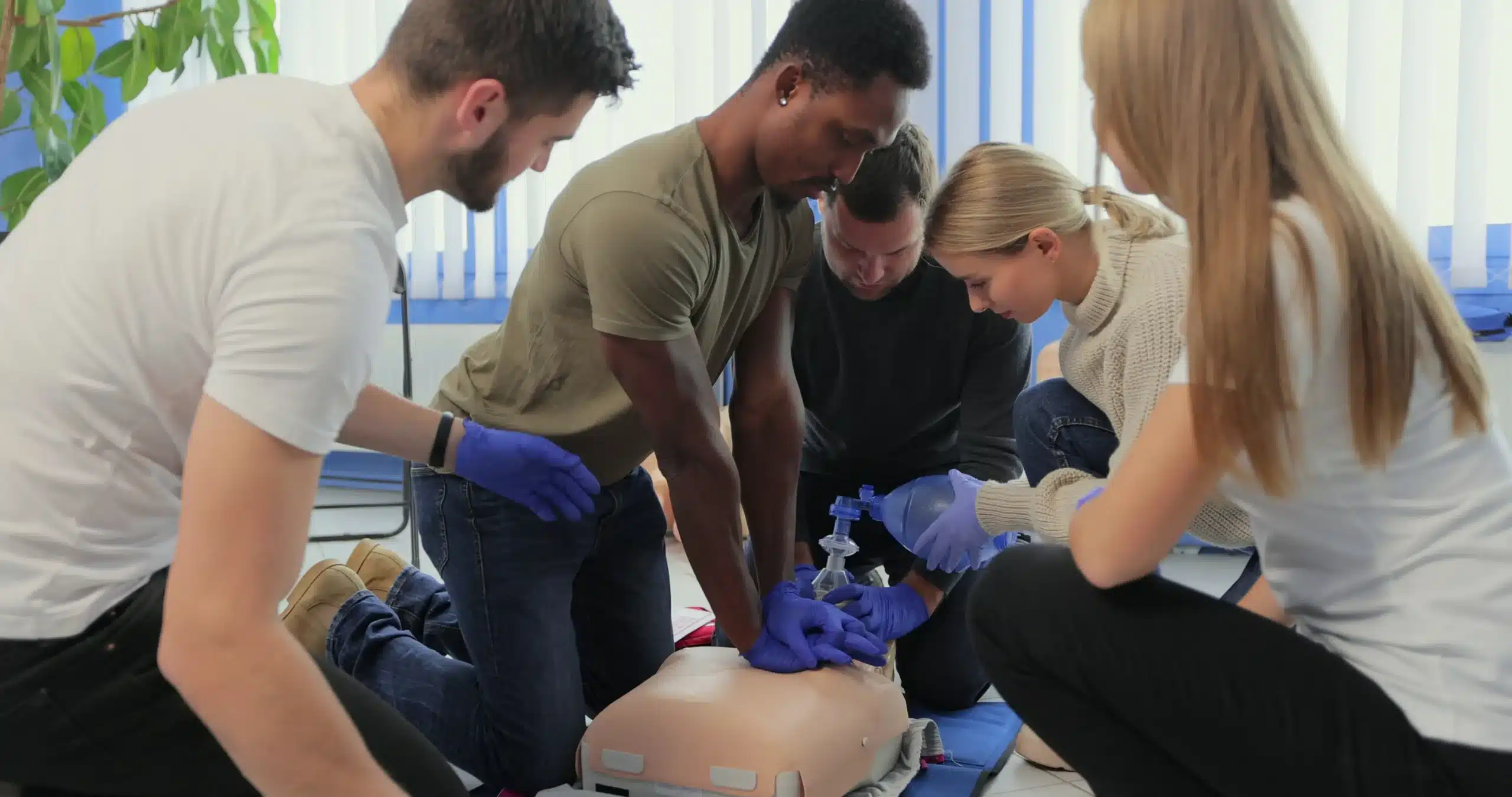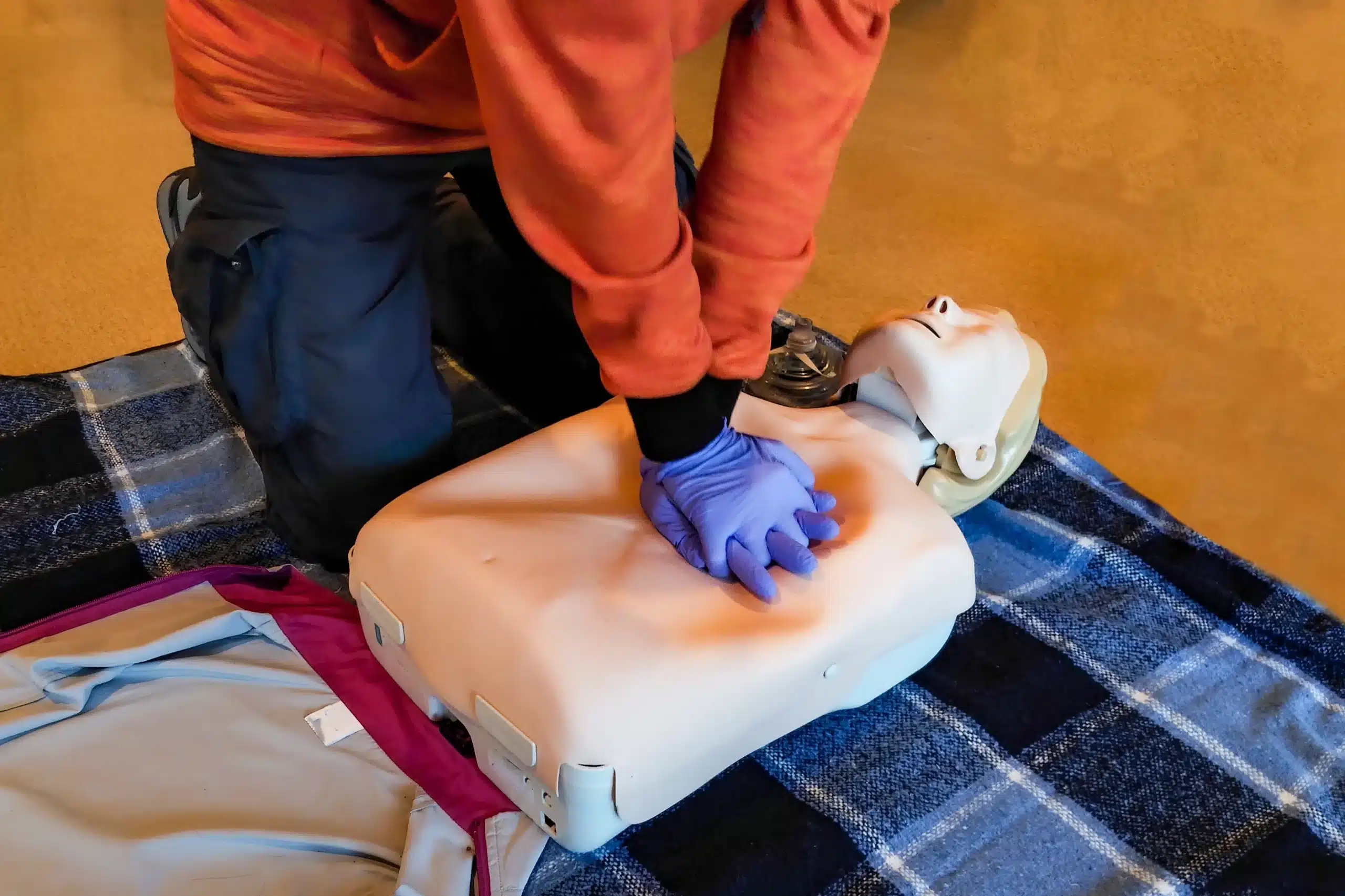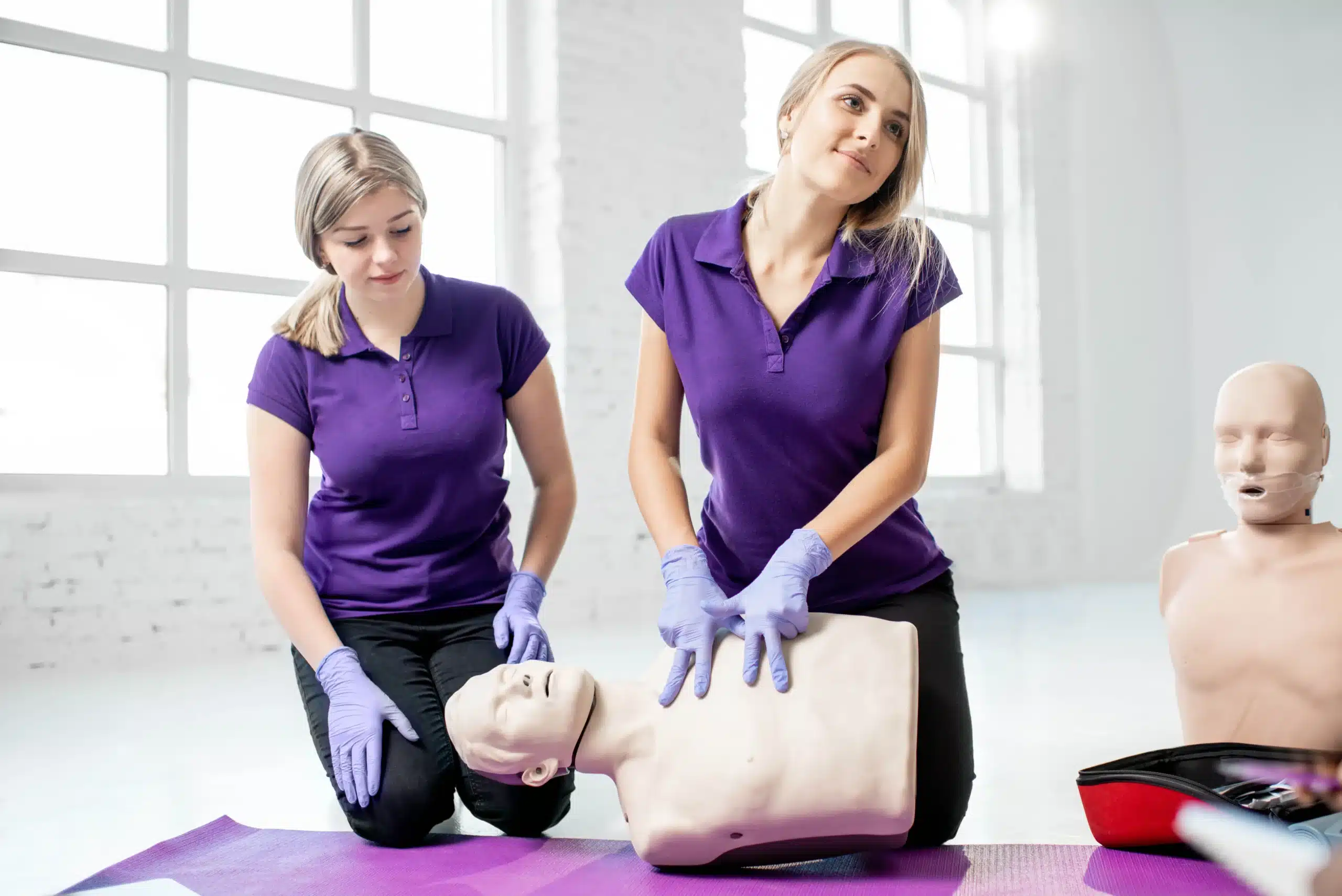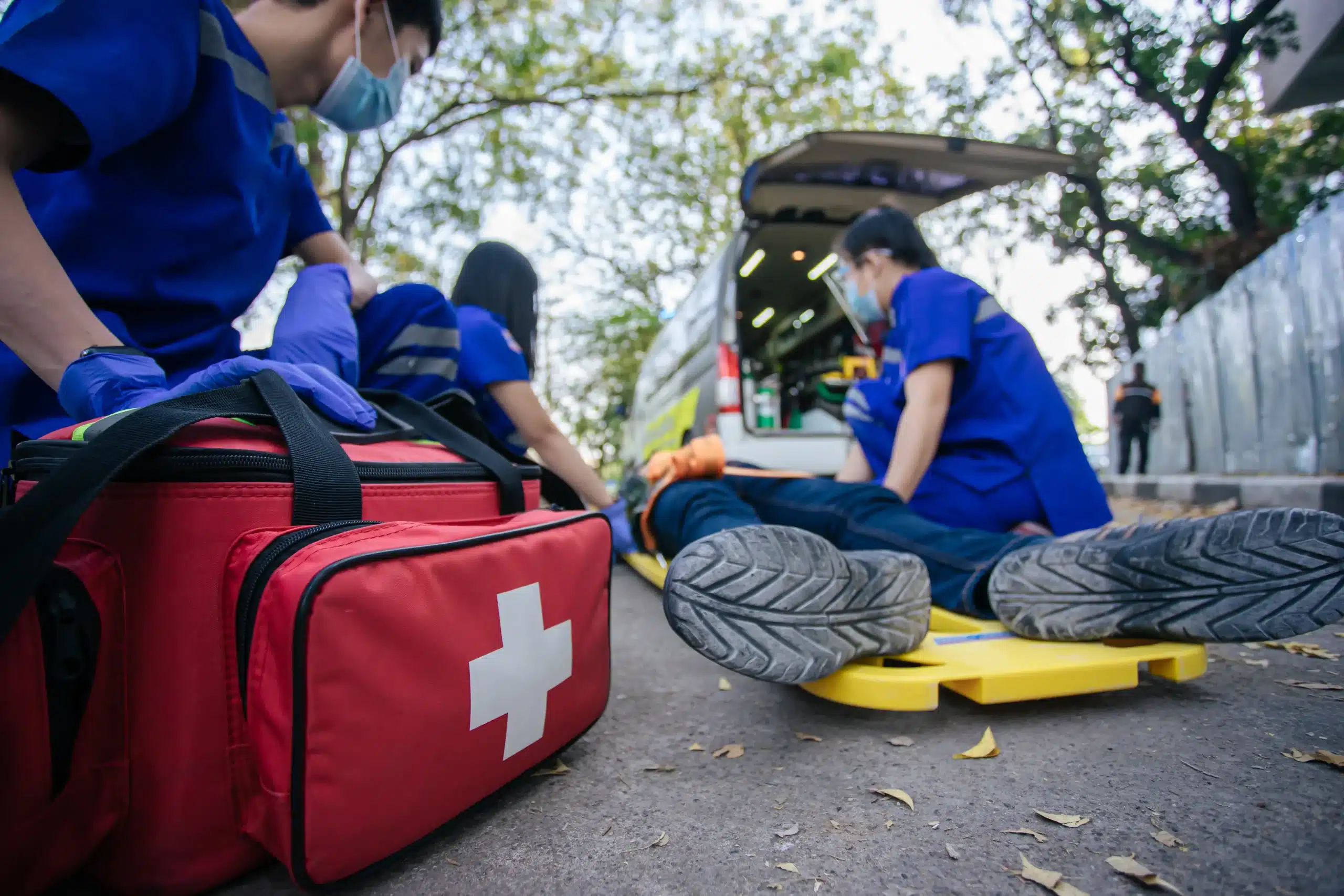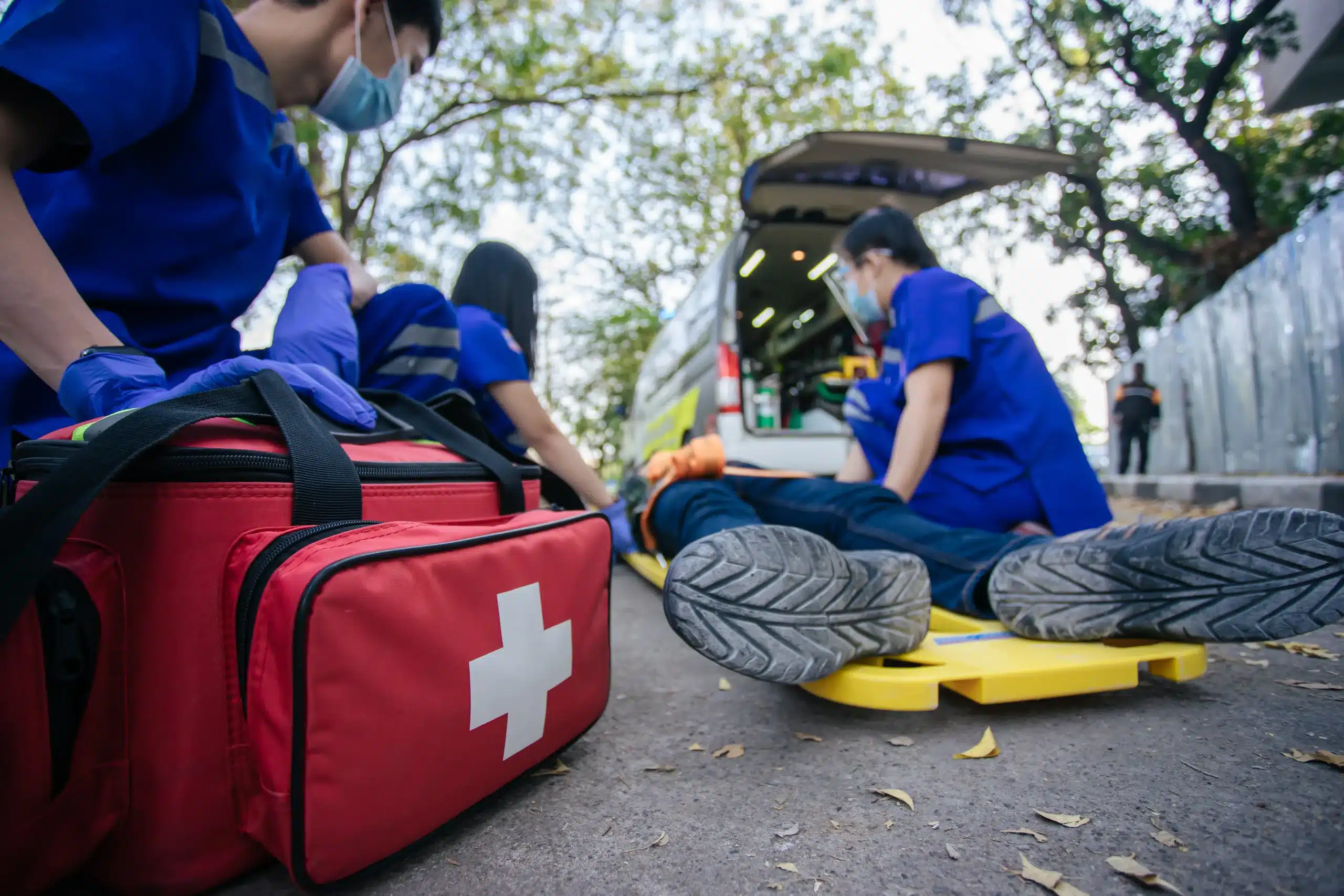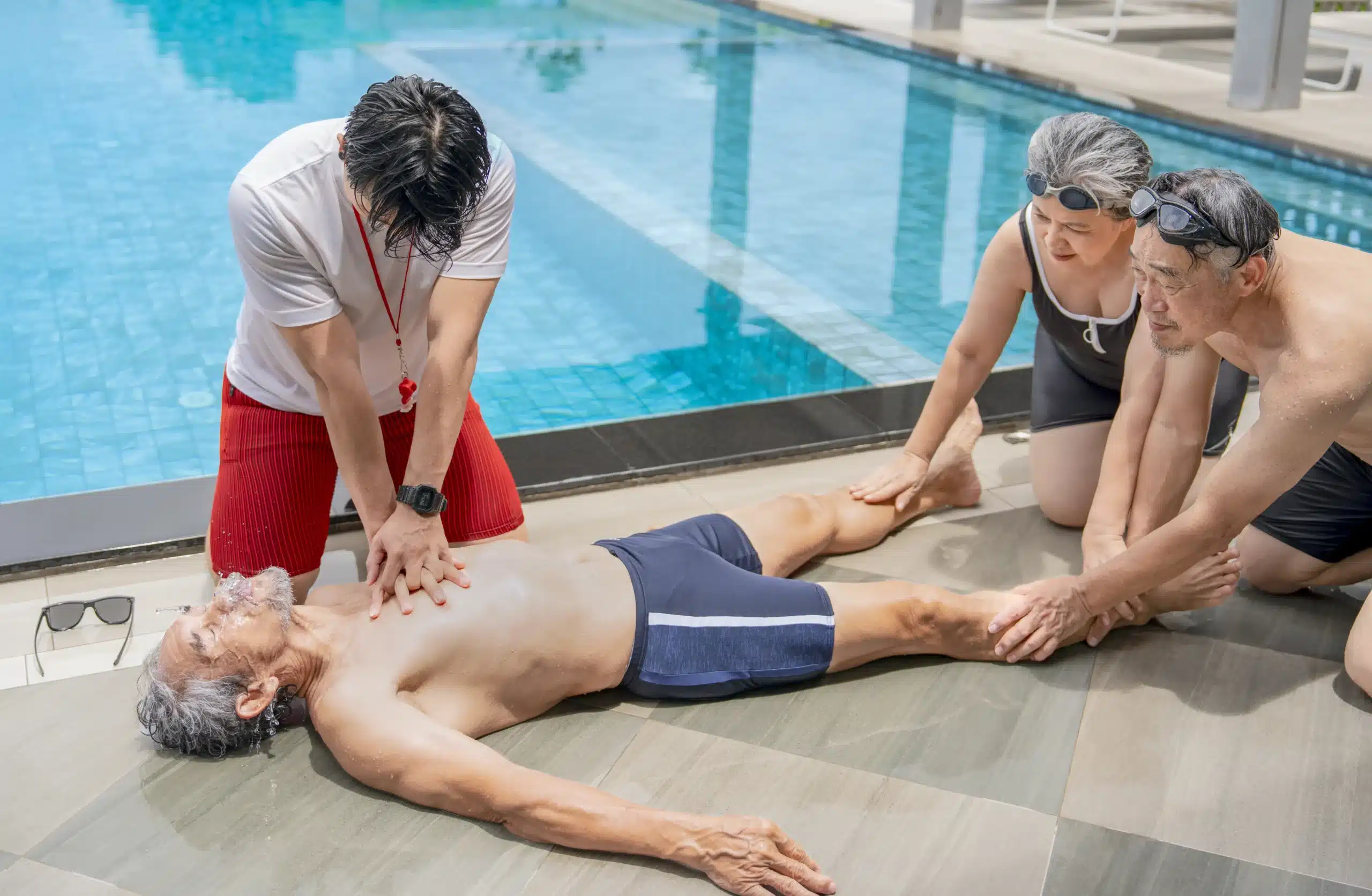As a healthcare provider, your dedication to patient care is unwavering. But staying up-to-date with the latest life-saving techniques requires ongoing training, which can be challenging to fit into an already packed schedule. If you’re seeking a convenient and effective way to earn your PALS certification, online PALS classes in Santa Clara might be the perfect solution. These courses offer the flexibility to learn at your own pace, combined with in-person skills sessions to ensure you’re fully prepared for real-world pediatric emergencies. This article will guide you through everything you need to know about online PALS classes, from course structure and benefits to cost and top providers in the Santa Clara area.
Key Takeaways
- Online PALS training offers a flexible learning experience: The blended learning format combines online modules with brief in-person skills sessions, allowing you to study at your own pace and fit the training around your schedule.
- Finding the right PALS provider simplifies the process: Look for an accredited provider like Santa Clara CPR Classes that offers AHA-certified courses, convenient locations, and flexible scheduling options. Compare costs and look for providers who offer additional resources and support.
- Active participation maximizes your learning: Create a productive study environment, manage your time effectively, and practice the necessary skills before your in-person skills assessment. Take advantage of any additional resources or support offered by your training provider to ensure you get the most out of your training.
What are Online PALS Classes?
Online PALS (Pediatric Advanced Life Support) classes offer a convenient and flexible way to develop the skills needed to respond to pediatric emergencies. These courses blend online instruction with in-person skills sessions, allowing you to learn at your own pace and then demonstrate your proficiency. This blended learning approach makes PALS certification more accessible, especially for busy professionals. Let’s explore what online PALS training entails.
What is PALS Certification & Why is it Important?
PALS Certification from the American Heart Association is a vital credential for healthcare providers who treat infants and children. It signifies that you possess the knowledge and skills to manage pediatric emergencies effectively. This specialized training goes beyond basic life support (BLS) and focuses on the unique physiological differences and treatment needs of young patients. Holding a PALS certification demonstrates a commitment to providing high-quality care and is often a requirement for employment in many pediatric healthcare settings.
Benefits of Online PALS Training
Online PALS classes offer several advantages. The flexibility of online learning allows you to study when and where it’s most convenient, fitting the training around your existing schedule. Online courses often provide self-paced modules, giving you control over your learning journey. This format can also be more cost-effective than traditional classroom-based courses, as it eliminates travel expenses and reduces time away from work. Plus, you gain instant access to digital course materials, which simplifies studying and review.
PALS Class Prerequisites
Before you enroll in a PALS course, it’s essential to meet specific prerequisites. You’ll typically need a current BLS (Basic Life Support) certification for healthcare providers. A background in healthcare related to pediatric care is also usually required, ensuring you have the foundational knowledge to grasp the advanced concepts covered in PALS training. Check with your chosen training provider to confirm their exact requirements. At Santa Clara CPR Classes, we’re happy to answer any questions you may have about our PALS courses and how to get started. Contact us today to learn more.
Top Online PALS Class Providers in Santa Clara
Finding the right PALS certification course can feel overwhelming with so many options. To simplify your search, we’ve compiled a list of top providers offering online and hybrid PALS classes in and around Santa Clara. Each program has unique features, so you can choose the best fit for your schedule and learning style.
Santa Clara CPR Classes
Santa Clara CPR Classes offers American Heart Association PALS Certification. With classes available seven days a week, they prioritize equipping healthcare professionals with the skills to manage pediatric emergencies. This convenient schedule makes fitting training into your busy life easier.
Safety Training Seminars
Safety Training Seminars also provides American Heart Association certified PALS courses in Santa Clara. They offer various courses, including BLS, ACLS, and First Aid, making them a convenient source for all your certification needs. Daily class availability ensures you can find a time that works for you.
Lifework Education
Lifework Education offers various learning formats, including in-person, online, and hybrid PALS certification courses in nearby San Jose and other California locations. This flexible approach lets you choose the learning environment that best suits your preferences.
SureFire CPR
SureFire CPR provides initial and renewal PALS certification courses in a hybrid online/in-person format. Experienced healthcare professionals lead their courses, ensuring high-quality instruction and support. This blended learning style combines online convenience with hands-on practice.
Bay Area CPR
Bay Area CPR offers American Heart Association-certified PALS courses emphasizing practical skills. They provide same-day certification cards, streamlining the process for quick certification. Their focus on hands-on training helps build confidence for real-world scenarios.
Online PALS Course Format & Features
Online PALS courses offer a blended learning approach, combining online instruction with in-person skills practice and testing. This format makes PALS certification more accessible and convenient, especially for busy professionals. Let’s break down what you can expect:
Course Structure & Duration
The online portion of the PALS course typically takes 3–4 hours to complete. You’ll work through the material at your own speed, pausing and reviewing as needed. This self-paced format lets you fit the training around your schedule. After finishing the online modules, you’ll schedule a short, in-person skills session (30–40 minutes) at a local testing center. Learn more about our PALS certification process.
Interactive Learning Tools
Online PALS courses incorporate interactive elements to keep you engaged and reinforce learning. Expect review videos, practice quizzes, and other interactive tools. These resources help solidify your understanding of the material before your skills check. Santa Clara CPR classes offer a variety of learning resources.
Flexible Scheduling
One of the biggest perks of online PALS training is the flexible scheduling. With classes available daily, you can choose a time that works for you. This flexibility is especially helpful for healthcare providers with demanding and unpredictable schedules. Explore PALS course scheduling options.
Skills Assessment & Certification
After completing the online modules, you’ll demonstrate your skills during a brief, in-person session with a certified instructor. This hands-on assessment ensures you can apply what you’ve learned in a real-world setting. You’ll receive your PALS certification card the same day you pass your skills check. Learn more about our skills assessment.
Overcoming Online Learning Challenges
While online learning is convenient, it requires self-discipline. Create a dedicated study space free from distractions. Set realistic goals and break down the material into manageable chunks. This guide offers helpful tips for successful online learning.
Online PALS Class Costs & Value
When considering online PALS certification, cost is naturally a factor. Understanding the typical price range and the potential return on investment can help you make an informed decision.
Initial & Renewal Course Pricing
PALS certification typically costs between $205 and $255 for initial certification, while renewal courses range from $155 to $160. Remember that these prices can vary depending on the training provider and course format. Some providers offer blended learning options combining online coursework with in-person skills sessions, which could affect the total price. Check out this article for more information on PALS costs.
Provider Cost Comparison
It’s always wise to compare pricing from different providers before committing to a PALS course. Providers like Safety Training Seminars offer American Heart Association-certified courses in Santa Clara, but prices may vary. Researching different options beforehand ensures you find the best value for your needs.
Discounts & Promotions
Many CPR training providers offer discounts and promotions, especially for groups or returning students. Santa Clara CPR Classes is known for its competitive pricing and low-price guarantee. Check with your chosen provider about potential special offers.
ROI for Healthcare Professionals
For healthcare providers working with children, PALS certification is a worthwhile investment. It enhances your skills and knowledge in responding to pediatric emergencies and increases your job prospects in various healthcare settings. The ability to provide effective care in critical situations is invaluable, and PALS certification demonstrates your commitment to this crucial aspect of pediatric care. The flexibility of online PALS classes allows you to learn at your own pace and retain information more effectively, maximizing the benefits of your training.
Make the Most of Your Online PALS Learning
Online PALS courses offer flexibility, but maximizing your learning requires a proactive approach. Here’s how to make the most of your online PALS training:
Time Management Strategies
Juggling work, family, and PALS training can be tricky. One common challenge healthcare providers face is balancing demanding schedules with the time commitment required for training. Effective time management is key. Treat your online PALS course like any other important appointment. Block out specific study times in your calendar and stick to them. Break down your study material into smaller, manageable chunks to avoid feeling overwhelmed. Even short, focused study sessions can be surprisingly effective.
Create an Effective Study Environment
Your study environment plays a big role in your learning success. Find a quiet space free from distractions where you can concentrate. Make sure you have reliable internet access and a comfortable workspace. Gather all your study materials beforehand so you’re not interrupting your flow. Remember, flexibility is a benefit of online learning, but it also requires self-discipline. Consider using noise-canceling headphones or a white noise machine to minimize distractions.
Prepare for the Hands-On Skills Assessment
Online PALS courses typically include a hands-on skills assessment. Santa Clara CPR Classes, for example, requires a 30-40 minute skills test at one of their testing sites. Before your assessment, review the skills checklist and practice the required procedures. This will build your confidence and ensure you’re fully prepared.
Access Additional Resources & Support
Don’t hesitate to reach out for support if you need it. Most online PALS providers offer additional resources and assistance. The American Heart Association’s RQI program, offered through providers like Santa Clara CPR Classes, is a great resource for BLS, ACLS, and PALS certification. These programs provide ongoing support and resources to help you maintain your skills. Check with your chosen provider to see what resources they offer.
Tips for Successful Certification & Recertification
Technical difficulties can sometimes disrupt online learning. Make sure you have the necessary equipment, like a reliable computer and a strong internet connection. Test your equipment before your course begins to avoid any last-minute surprises. If you encounter technical issues during the course, contact your provider’s support team for assistance. For smooth recertification, plan and schedule your renewal course before your current certification expires. Staying organized and proactive will set you up for success.
Related Articles
- Online PALS Classes in Milpitas: Your Guide – Santa Clara CPR Classes
- PALS Certification in Santa Clara: Costs & Requirements – Santa Clara CPR Classes
- AHA PALS Classes in Santa Clara, CA – Santa Clara CPR Classes
- Pediatric Advanced Life Support (PALS) Courses in Milpitas – Santa Clara CPR Classes
- Course Preparation – Santa Clara CPR Classes
Frequently Asked Questions
What is the difference between PALS and BLS certification? BLS (Basic Life Support) certification covers fundamental life-saving techniques for all ages, while PALS (Pediatric Advanced Life Support) builds upon BLS and focuses specifically on the specialized needs of infants and children. PALS addresses the unique physiological differences in pediatric patients and provides advanced training in managing pediatric emergencies. If you’re working with children, PALS certification is essential.
How long does a PALS certification last? PALS certification is valid for two years. To maintain your credentials and stay up-to-date with the latest guidelines, you’ll need to complete a PALS recertification course before your current certification expires. Many providers offer recertification courses that are shorter and focus on refreshing your existing knowledge and skills.
What if I don’t have a healthcare background? Can I still take a PALS course? While PALS certification is primarily designed for healthcare providers, anyone interested in gaining these life-saving skills can typically enroll in a course. However, keep in mind that PALS training builds upon basic life support principles, so having a current BLS certification is usually a prerequisite. Check with your chosen training provider to confirm their specific requirements.
Are online PALS courses as effective as traditional classroom courses? Yes, online PALS courses are just as effective as traditional classroom courses, offering a blended learning approach that combines online instruction with in-person skills practice and testing. This format allows for flexible learning while still ensuring you develop the necessary hands-on skills. The online portion covers the theoretical knowledge, while the in-person skills session allows you to demonstrate your proficiency under the guidance of a certified instructor.
How can I find a reputable PALS training provider near me? The American Heart Association is a recognized authority for CPR and emergency cardiovascular care training. You can use their website to find certified training centers in your area. Additionally, word-of-mouth referrals from colleagues or online reviews can be helpful in identifying reputable providers with a track record of quality instruction and student satisfaction. Look for providers who offer convenient schedules, experienced instructors, and a variety of learning resources.
